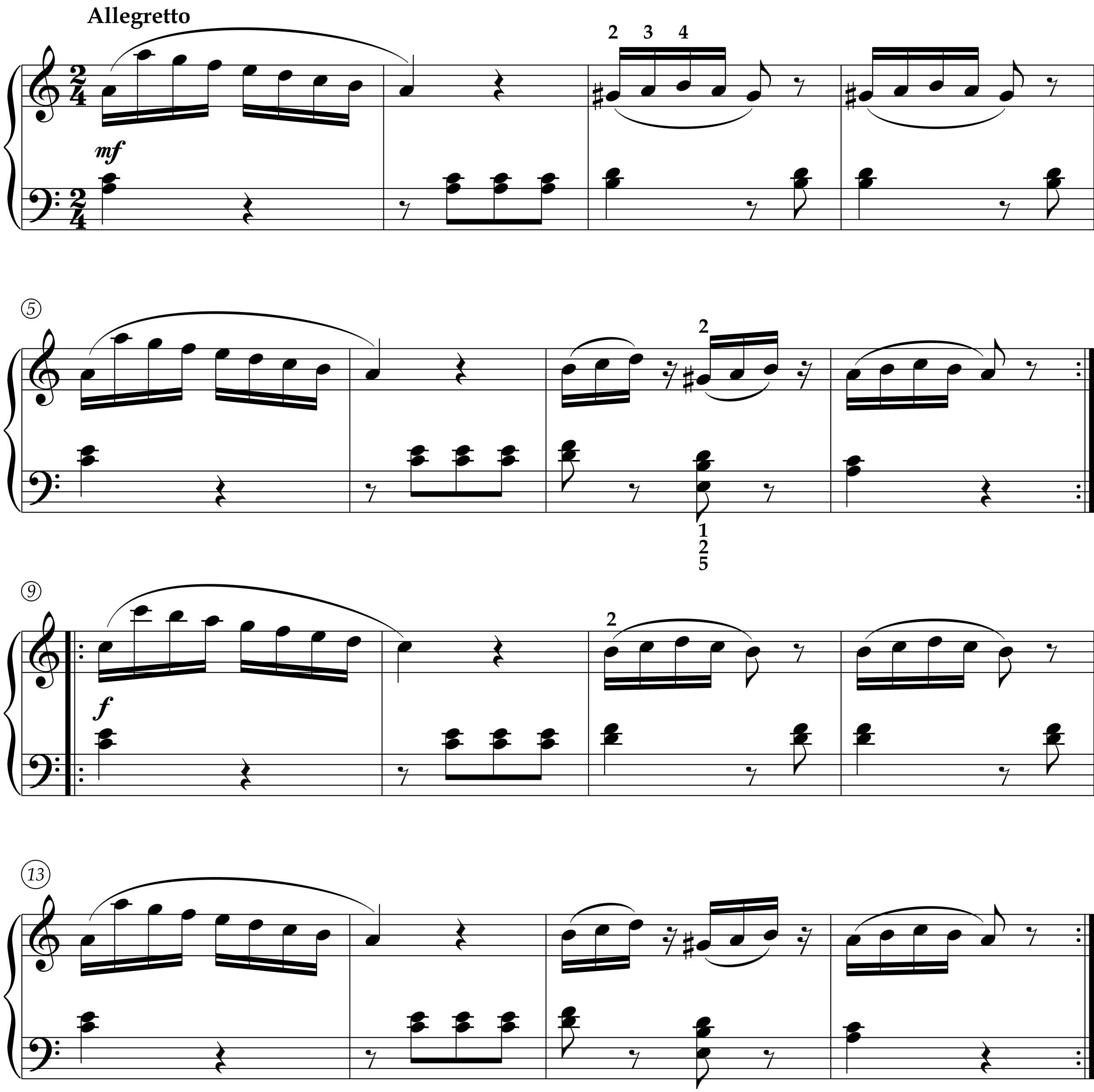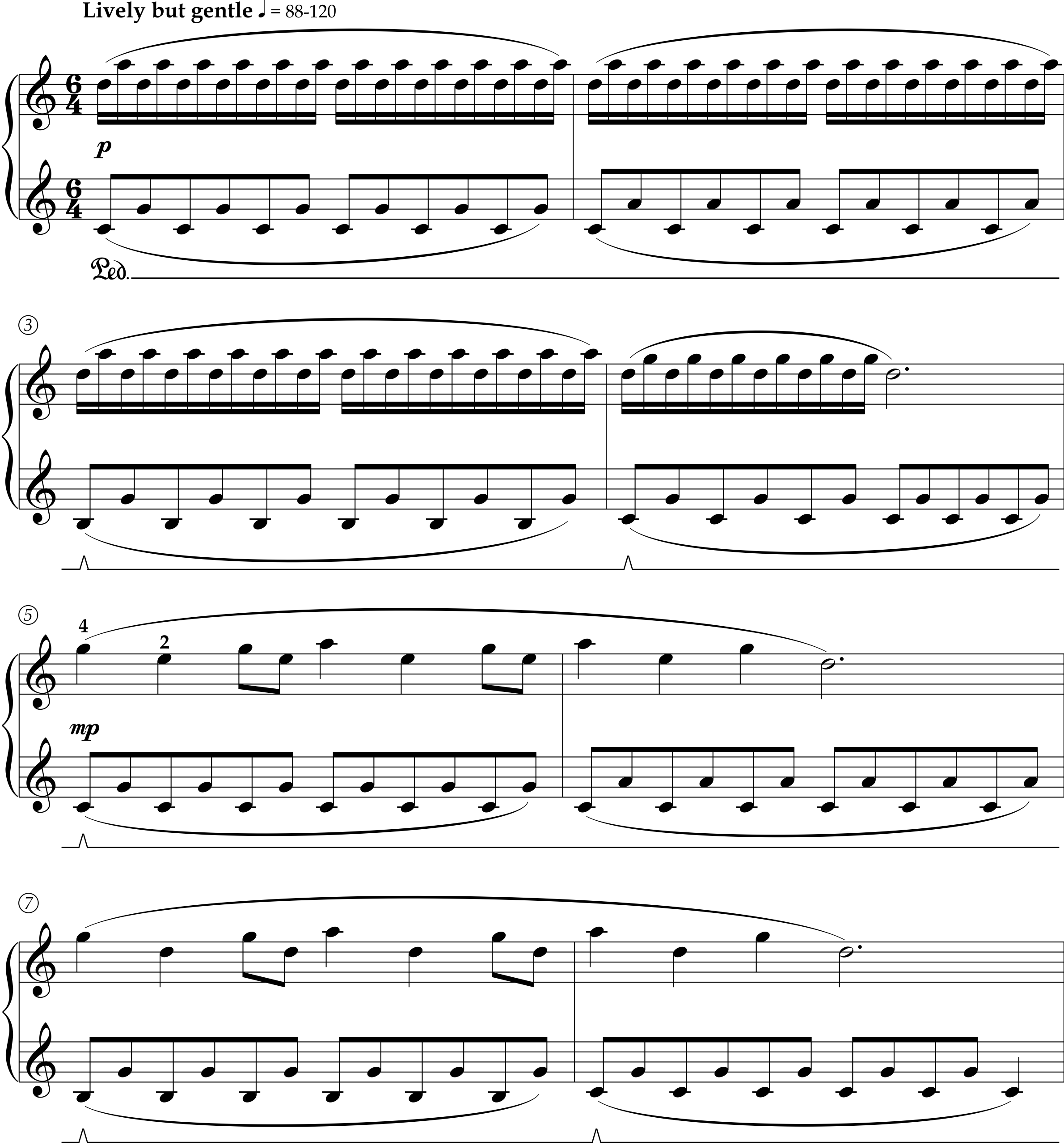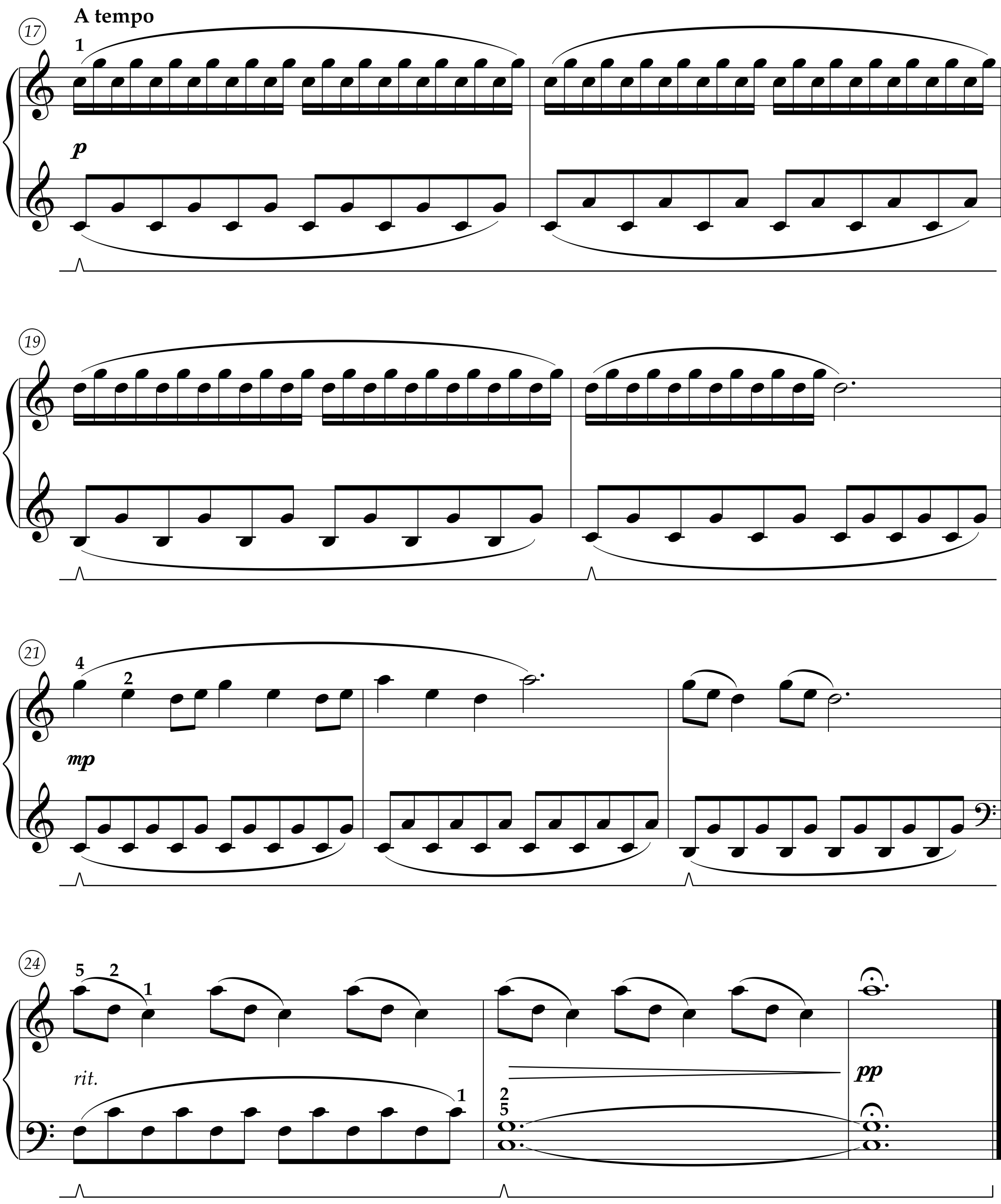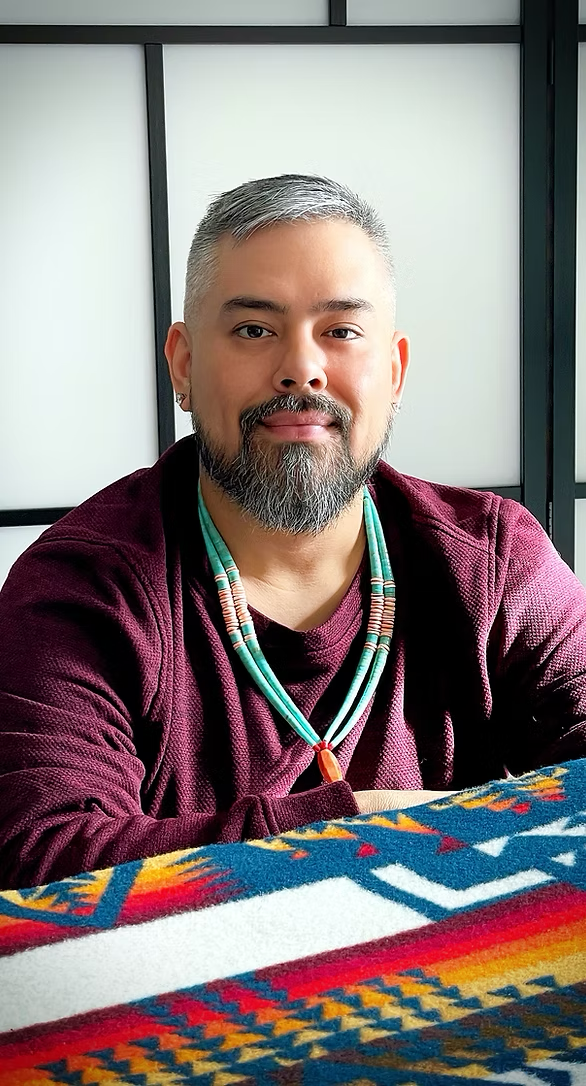49 Repertoire
49.1 | Etude in A Minor, Op. 82, No. 52
Cornelius Gurlitt
(Germany, 1820–1901)

Commissioned Repertoire
49.2 | Hummingbird’s Gift
Connor Chee



About the Piece
“In Diné (Navajo) tradition, the hummingbird is more than just a swift and delicate creature—it is a teacher and messenger. According to our stories, the hummingbird was the one who taught us how to gather corn pollen, which we use as an offering in our prayers. Corn pollen is sacred, representing blessings, balance, and connection to the natural and spiritual worlds.
‘Hummingbird’s Gift’ reflects this role, capturing the hummingbird’s light, fluttering movement while also symbolizing the quiet reverence of an offering. The music moves with grace and agility, suggesting both the swift flight of the hummingbird and the gentle act of sprinkling corn pollen in prayer.
Pedagogically, this piece focuses on pedaling, phrasing, and textural colors on the piano, encouraging students to explore a range of expressive possibilities. The tempo is flexible, allowing students to shape the piece according to their level and musical interpretation.”
Connor Chee
About the Composer

Connor Chee
Navajo pianist and composer Connor Chee is known for combining his classical piano training with his Native American heritage. Chee made his Carnegie Hall debut at the age of 12 after winning a gold medal in the World Piano Competition. A graduate of the Eastman School of Music and the University of Cincinnati’s College-Conservatory of Music, Chee’s solo piano music is inspired by traditional Navajo chants and songs.
Chee has released 3 studio albums of original pieces and piano transcriptions of Navajo music. The Navajo Piano won Best Instrumental Recording at the 16th Annual Native American Music Awards, and his piece “Beginnings” won Best New Age Song.
Chee’s most recent release, Scenes from Dinétah, features piano pieces written about elements of Navajo life and culture. It has been accompanied by the release of several music videos filmed on the reservation, directed by Navajo filmmaker Michael Etcitty Jr.